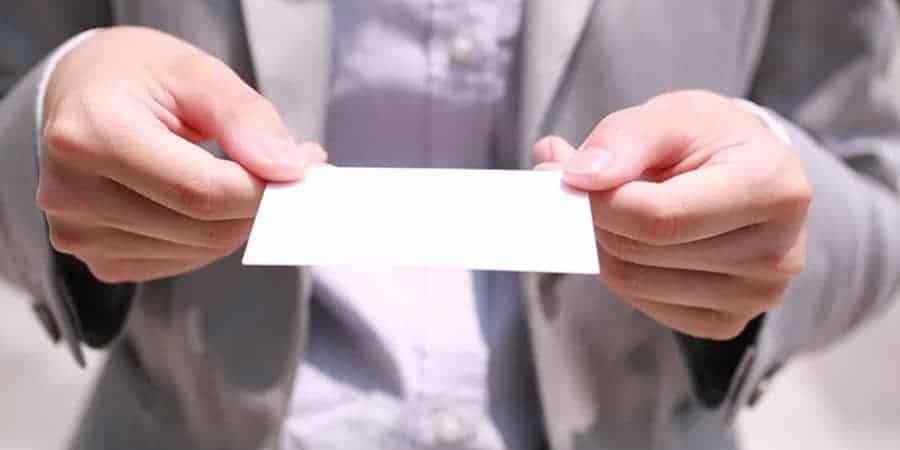If you’ve ever been on a business trip to China, or plan on taking one, there are things you should know before you leave. Chinese culture can be very different from what you may be used to, so to get the most from your business trip to China, you’ll want to understand as many of those differences as possible and to take them into account when dealing with your Eastern counterparts.
In China, 13 is considered a lucky number, so here are 13 of our top tips for a successful trip to China for the business traveller.

Start slow
Socialising comes before business.
Western idioms like ‘let’s cut to the chase’ or ‘dive right in there’ should be left at home. In China, respect and trust comes before any business dealings, so you may find yourself at a dinner party, the driving range, or some other form of – often cultural – entertainment even several times before getting down to actual business dealing. The bigger the potential deal, the more of this to expect.
This may be frustrating to you, especially if you have a lot riding on the deal, or are excited to start the ball rolling. Take encouragement from it though, as this relationship development is a sign that your potential partner in the deal is taking you seriously, developing the groundwork for something longer-term. This is a good thing.
The Chinese word for it is Guanxi, and it is worth a little research before you leave for your trip.
Bring gifts
It is a custom to bring a gift to business associates, especially those of similar or higher rank to you. The value of what you bring is not as important as the sense of personal or cultural identity it carries.
Alcohol and tobacco are popular gifts, but ironically so are health supplements, tea, nuts, fruits and other food. The best gifts are clearly tied to your home country. If you’re coming from Scotland, bring some smoked salmon, scotch whiskey, or Scottish-themed biscuits. English tea in decorative tins – red phone booths, black taxis, Big Ben, etc. – are also good choices.
Bring something special for your primary contact, but also bring some spares. You never know when you’ll make a potentially-fruitful contact and you’ll want to start things off right.
Bring plenty of business cards too. Hand each one out with both hands, and read any that are given to you. They are important symbols to most Asian business people.

Learn a few Chinese phrases
Chinese can be difficult, especially the tonal system, but just as you understand basic English even through a thick accent, your Chinese counterpart will likely understand you, and will appreciate that you took the time to learn something of the local language.
Don’t expect anyone to speak English. Some business people do speak English, especially at high levels, but this is often not the case. You may be dealing with a translator. If so, speak directly to the businessperson you wish to address, and smile politely while the translation is being delivered, and while your counterpart replies.
Nods and smiles go a long way. Don’t show frustration or annoyance, as this will kill trust, and the deal with it.
Respect goes a long way – so does disrespect
This is true in most situations, but Chinese culture can seem very complex to outsiders, and making the right move in a seemingly-unimportant thing may be key. Chinese people tend to take etiquette very seriously – their own, and that of other cultures – and it will be assumed that you are at least somewhat aware of what to do. Here are a few basics.
Some are similar to good manners in Western culture. Never interrupt; it is considered very rude. Don’t make a scene; this includes raising your voice or getting angry in public, pointing, or bragging and cockiness.
Some are less intuitive. Refuse offers of food or drink a few times, even if you are hungry or thirsty. This shows a respect for the belongings of your host. When you do finally accept, and are satisfied, leave a little of the food and drink unfinished. In Chinese culture, this is a signal that your host has been generous, giving you more than you needed. Clearing your plate or emptying your glass is a signal that you would like more.

Finally, don’t be late for meetings. Ever. Arrive in the area early if possible, find the place you need to go, and then wait until the proper time before entering. Ten or fifteen minutes prior to a meeting is appropriate. Don’t be too early, and don’t ever be late.
Tactics can be… crafty
Be aware of differences in business ethics. Craftiness is highly valued, as is profit and a personal reputation for successful deals. Sometimes – not always – this can mean negotiation tactics that would be seen as deceitful or unethical by most in the West.
This is not always the case of course – on either side of the Pacific – but it is something to be aware of when making deals: assumptions and hand-shake deals can turn around and bite you. Smiles can hide an ‘unfair’ advantage.
Passports
You will need at least 6 months of validity remaining on your passport, and two blank pages. If you have less time than this before you must renew, or fewer blank pages, you can apply for a new one prior to your trip.
Visas
You will need one of two types of visa to enter the country, unless you are a citizen of Brunei, Japan or Singapore. For most business trips to China, you will need an M visa. These can be obtained from the Chinese embassy or consulate, or by using an expediter.
You will need an invitation letter from an authorised Chinese business, or a letter of introduction from your own business may suffice.
Overstaying your visa in China may result in hotels and other services refusing to serve you, or in fines, deportation, and a status of persona non grata for future trips. In other words, they’ll stop serving you and you won’t be allowed back in.
Police will also stop foreigners to check official papers, so always carry your passport with visa, and any other travel credentials you may have.
The wild, wild west of data
Many people use a disposable phone and a dedicated laptop for business trips to China. This is to ensure that no sensitive company data is transported into the country, and that no spyware or malware is transported out of it and into your company’s system.
The Chinese government regulates the Internet, blocking many sites and attempting to control what it’s citizens can access online, so don’t be surprised when you can’t access your usual streaming sites or even some seemingly-mundane information. Bring necessary data with you.

Pollution
Pollution in most Chinese cities is very high. You will want to bring a pollution mask – much like a surgeon’s mask – and wear it when outdoors. It looks very strange to Westerners, but is perfectly normal in most Asian countries.
Things to bring
Bring an adapter for power outlets. China uses a 220-volt system at 50Hz AC. A universal adapter is an excellent investment for a frequent traveller, and they are inexpensivea.
Bring earplugs. Something subtler than noise-cancelling headphones is best, but bring the headphones too if you are sensitive to traffic, construction, and other such noises – there are a lot of them.
Bring something for upset stomach and/or diarrhoea. Food in China can be very different from what other countries call ‘Chinese food,’ and some of it will be very strange to you. Foods that you are not used to, even high-quality ones, can throw off your system, and you don’t want to be hunting around a Chinese shop for the right medication while in distress. Bring your own; even if you don’t use it, it will give peace of mind.
Look six ways before crossing the street
Traffic is heavy in China, and it moves at high speeds. When crossing the street, even on green walk lights at a crosswalk, don’t assume that drivers can see you or will stop. Treat it like a challenge to keep yourself out of trouble; cross only when clearly safe, cross quickly, and use pedestrian overpasses or underpasses when possible.
If you are used to vehicles using the left-hand side of the road you must be extra-careful; Chinese drivers use the right side.

Didi Chuxing – The Chinese Uber
Now available in English, this Uber-like service is reliable and more trustworthy than the unlicensed cabs (some of which are quite official-looking) that frequent the airport and other high-traffic areas. Because your destination is entered into the app, you can take a look and verify that your booked trip will take you to the right place.
Make sure you have your hotel’s phone number and address, in both English and Chinese, with you at all times. A hotel business card will have all of this information. It’s a good idea to have your Chinese business contacts’ information as well.
Expect flight delays
Chinese airports and airlines are notorious for late flights. They are extremely busy, often disorganised, and this results in frequent delays.
Not to worry; you’re prepared.
Don’t book any meetings or time-sensitive activities just after a scheduled flight. Remember, tardiness is highly disrespectful in Chinese culture, and even if the airline is at fault, a late arrival can still taint an otherwise positive interaction.
And for your own peace of mind, bring along an interesting book to read or game on your phone to play while waiting. It will reduce your stress and make the time pass by more quickly.
Summary
You don’t need to be worried about your business trip to China; you just need to be prepared.
Pack right, prepare yourself with a few phrases and some cultural knowledge. Plan for delays and get to locations early.
Set your mind for a slower start to the business relationship – get to know each other first.
Be mindful of cultural practices and differences, and smooth over any faux pas (yours and theirs) with a genuine smile.
Business trips to China can be the key to lucrative and mutually-beneficial relationships for years or decades to come, so a good start is well worth a little extra effort. Good luck to you, and good profits.






